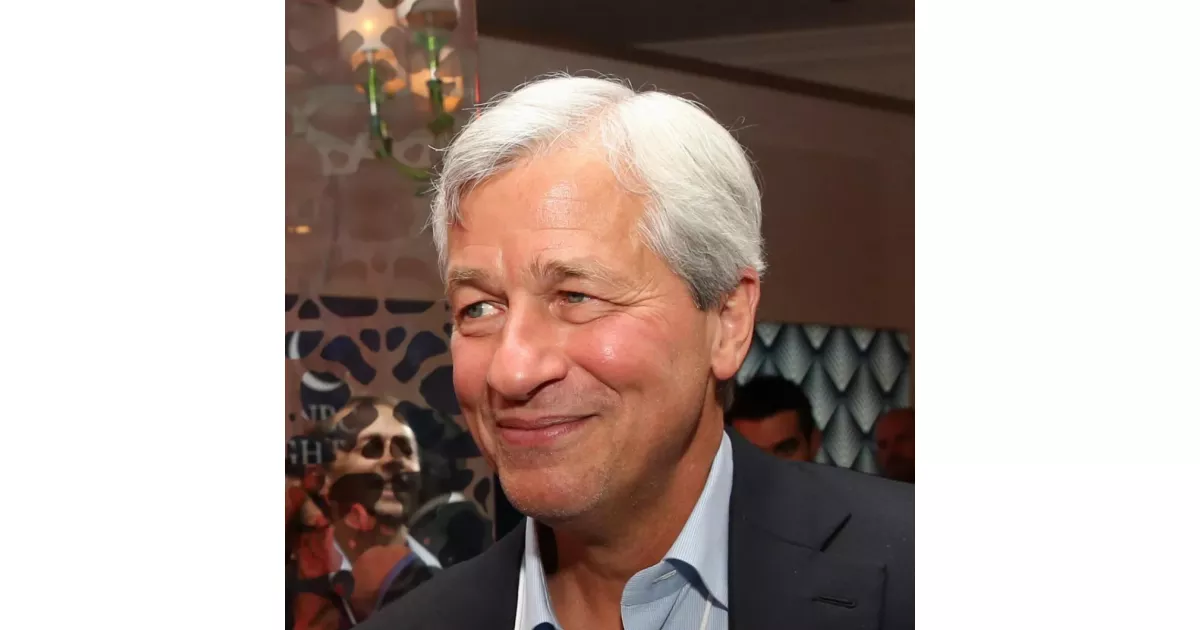Jamie Dimon is the Chairman and CEO of JPMorgan Chase since 2006. As a prominent figure in the financial industry, he leads one of the world's largest financial institutions. Dimon's tenure has been marked by navigating significant economic events, including the 2008 financial crisis and subsequent regulatory changes. He is known for his leadership in banking, his commentary on economic policy, and his influence within the global financial landscape.
March 13, 1956: Jamie Dimon's Birth
On March 13, 1956, James "Jamie" Dimon was born. He would later become the chairman and CEO of JPMorgan Chase.
1982: Graduation from Harvard Business School
In 1982, Jamie Dimon graduated from Harvard Business School with an MBA as a Baker Scholar.
1983: Marriage to Judith Kent
In 1983, Jamie Dimon married Judith Kent, whom he met at Harvard Business School.
1985: Left American Express with Sandy Weill
In 1985, Jamie Dimon left American Express with Sandy Weill, following Weill's departure.
1989: Donations to Democratic Party
From 1989, Jamie Dimon donated primarily to the Democratic Party.
1997: Argument with Weill over daughter's promotion
In 1997, Jamie Dimon and Sandy Weill reportedly argued over Dimon's inaction to promote Weill's daughter, Jessica M. Bibliowicz.
November 1998: Departure from Citigroup
In November 1998, Jamie Dimon left Citigroup after being asked to resign by Sandy Weill.
July 2004: President and COO of JPMorgan Chase
In July 2004, after JPMorgan Chase merged with Bank One, Jamie Dimon became president and chief operating officer of the combined company.
December 31, 2005: CEO of JPMorgan Chase
On December 31, 2005, Jamie Dimon was named CEO of JPMorgan Chase.
2006: CEO of JPMorgan Chase
In 2006, Jamie Dimon assumed the role of chief executive officer (CEO) of JPMorgan Chase.
2006: Time's 100 Most Influential People
In 2006, Jamie Dimon was included in Time magazine's list of the world's 100 most influential people.
December 31, 2006: Chairman and President of JPMorgan Chase
On December 31, 2006, Jamie Dimon was named chairman and president of JPMorgan Chase.
2007: Lead up to Financial Crisis
In the years leading up to the 2007 financial crisis, JPMorgan Chase was involved in the mis-selling of mortgage-backed securities.
March 2008: Board Member of the Federal Reserve Bank of New York
In March 2008, Jamie Dimon was a Class A board member of the Federal Reserve Bank of New York.
2008: Obama Presidency Speculation
After Barack Obama won the 2008 presidential election, there was speculation that Jamie Dimon would become Secretary of the Treasury.
2008: Time's 100 Most Influential People
In 2008, Jamie Dimon was included in Time magazine's list of the world's 100 most influential people.
2008: Lead up to Financial Crisis
In the years leading up to the 2008 financial crisis, JPMorgan Chase was involved in the mis-selling of mortgage-backed securities.
2009: TopGun CEOs
In 2009, Jamie Dimon was considered one of "The TopGun CEOs" by Brendan Wood International.
2009: Time's 100 Most Influential People
In 2009, Jamie Dimon was included in Time magazine's list of the world's 100 most influential people.
2009: Donations to Democratic Party
Until 2009, Jamie Dimon donated primarily to the Democratic Party.
2011: $23 Million Pay Package
In 2011, Jamie Dimon received a $23 million pay package from JPMorgan Chase.
2011: Chairman of The Business Council
In 2011, Jamie Dimon was chairman of the executive committee of The Business Council.
2011: Time's 100 Most Influential People
In 2011, Jamie Dimon was included in Time magazine's list of the world's 100 most influential people.
May 10, 2012: $2 Billion Trading Loss
On May 10, 2012, JPMorgan Chase reported a loss of at least $2 billion in trades, which Dimon described as "flawed, complex, poorly reviewed, poorly executed and poorly monitored."
May 2012: Dimon's Political Stance
In May 2012, Jamie Dimon described himself as "barely a Democrat."
2012: Chairman of The Business Council
In 2012, Jamie Dimon was chairman of the executive committee of The Business Council.
2012: Compensation Reduced to $11.5 Million
In 2012, Jamie Dimon's compensation was reduced to $11.5 million by JPMorgan Chase following controversial trading losses.
2013: Record Profits and Stock Price
In 2013, Jamie Dimon led JPMorgan Chase through a year of record profits and stock price despite significant losses due to scandals and payments of fines.
January 24, 2014: $20 Million Compensation
On January 24, 2014, it was announced that Jamie Dimon would receive $20 million for his work in 2013.
September 2014: End of Cancer Treatment
In September 2014, Jamie Dimon completed eight weeks of radiation and chemotherapy for throat cancer.
December 2016: Joined Trump's Business Forum
In December 2016, Jamie Dimon joined a business forum assembled by then president-elect Donald Trump to provide strategic and policy advice on economic issues.
2016: Campaigning against Brexit
During the 2016 United Kingdom European Union membership referendum, JPMorgan Chase, under Jamie Dimon's leadership, donated to the Remain campaign, and Dimon personally campaigned against Brexit with George Osborne.
2017: Dissolution of Business Forum
In 2017, the business forum Dimon joined dissolved after Trump's comments on the alt-right political violence at the Unite the Right rally.
2018: Considered Presidential Campaign
In 2018 Jamie Dimon considered starting his own presidential campaign, but decided against it.
2019: Interview on 60 Minutes
In a 2019 interview with 60 Minutes, Jamie Dimon claimed that the United States had reached "the most prosperous economy the world has ever seen."
March 2020: Emergency Heart Surgery
In March 2020, at the age of 63, Jamie Dimon underwent "emergency heart surgery" to repair an acute aortic dissection.
April 2020: Return to Work Remotely
In April 2020, it was announced that Jamie Dimon returned to work in a remote capacity due to the COVID-19 pandemic.
2020: Criticism of Democratic Party Presidential Primaries
During the 2020 Democratic Party presidential primaries, Jamie Dimon criticized the lack of a "strong centrist, pro-business, pro-free enterprise" candidate.
2021: Condemnation of Capitol Attack
In 2021, Jamie Dimon condemned the United States Capitol attack.
2022: $34.5 Million Compensation
In fiscal year 2022, Jamie Dimon received $34.5 million from JPMorgan Chase.
May 2023: Testimony in Lawsuits Regarding Jeffrey Epstein
In May 2023, Jamie Dimon testified under oath in connection with two lawsuits filed against JPMorgan Chase for allegedly serving Jeffrey Epstein.
June 2023: Encouraged to Run for President in 2024
In May-June 2023, Jamie Dimon was encouraged by Bill Ackman to run in the 2024 United States presidential election, clarifying that he has no plans to run for office at this time.
November 2023: Preferred Nikki Haley for Republican Nominee
In November 2023, Jamie Dimon said he preferred Nikki Haley over Donald Trump as the Republican nominee in the 2024 U.S. presidential election.
2023: $36 Million Compensation
In fiscal year 2023, Jamie Dimon received $36 million from JPMorgan Chase.
August 2024: Op-Ed in The Washington Post
In August 2024, Jamie Dimon published an op-ed column in The Washington Post, where he stated that the next president must "restore our faith in America."
October 2024: Report of Private Support for Kamala Harris
In October 2024, The New York Times reported that Jamie Dimon was privately supporting Kamala Harris' 2024 campaign.
2024: Board Member of the Business Roundtable
As of 2024, Jamie Dimon is a board member of the Business Roundtable.
2024: $39 Million Compensation
In fiscal year 2024, Jamie Dimon received $39 million from JPMorgan Chase.
January 2025: Support for Trump's Tariff Policies
After Donald Trump took office as president again in January 2025, Jamie Dimon said he supported Trump's tariff policies, despite previously stating that the tariffs were a threat to the US economy.
March 2025: Concerns About Tariffs Amid Worsening Economic Outlook
In March 2025, amid a worsening economic outlook due to Trump's tariff threats, Jamie Dimon said that tariffs contributed to uncertainty in the markets.
May 2025: Forbes Estimate of Jamie Dimon's Net Worth
In May 2025, Forbes estimated Jamie Dimon's net worth at $2.5 billion.
June 2025: Dimon says his retirement is still "several years away"
As recent as June 2025 Dimon has said his retirement is still "several years away" and that he may stick around longer at JP Morgan.
Mentioned in this timeline

Donald John Trump is an American politician media personality and...
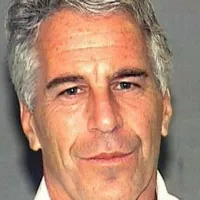
Jeffrey Epstein was an American financier and convicted sex offender...

Barack Obama the th U S President - was the...
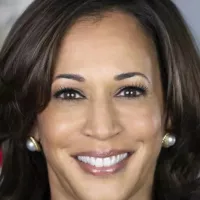
Kamala Devi Harris is an American politician and attorney notable...

JPMorgan Chase Co incorporated in Delaware and headquartered in New...
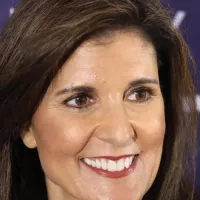
Nikki Haley is an American politician and diplomat She served...
Trending

2 months ago Texas Schools Ordered to Remove Ten Commandment Posters After Judge's Ruling

Martin Luther King Jr was a pivotal leader in the American civil rights movement from until his assassination in As...

6 months ago Jim Kelly Football Camp Begins at Highmark Stadium, Offering Unique Bills Experience.
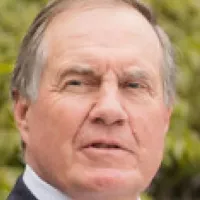
2 months ago Belichick Eyes Wake Forest Amidst Giants Job Rumors: McDaniels Also in the Mix?
3 months ago Rigetti Computing Stock Soars as Billionaires Invest in Quantum Future.
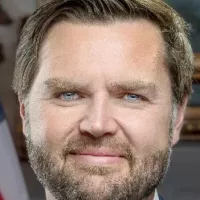
6 months ago JD Vance to promote Trump's agenda bill in Pennsylvania next week.
Popular

Stranger Things created by the Duffer Brothers is a popular...

XXXTentacion born Jahseh Dwayne Ricardo Onfroy was a controversial yet...
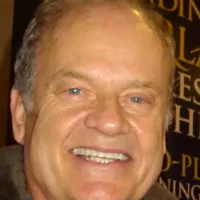
Kelsey Grammer is an accomplished American actor producer and singer...

Candace Owens is an American conservative political commentator and author...

Melania Trump a Slovenian-American former model has served as First...

Bernie Sanders is a prominent American politician currently serving as...
